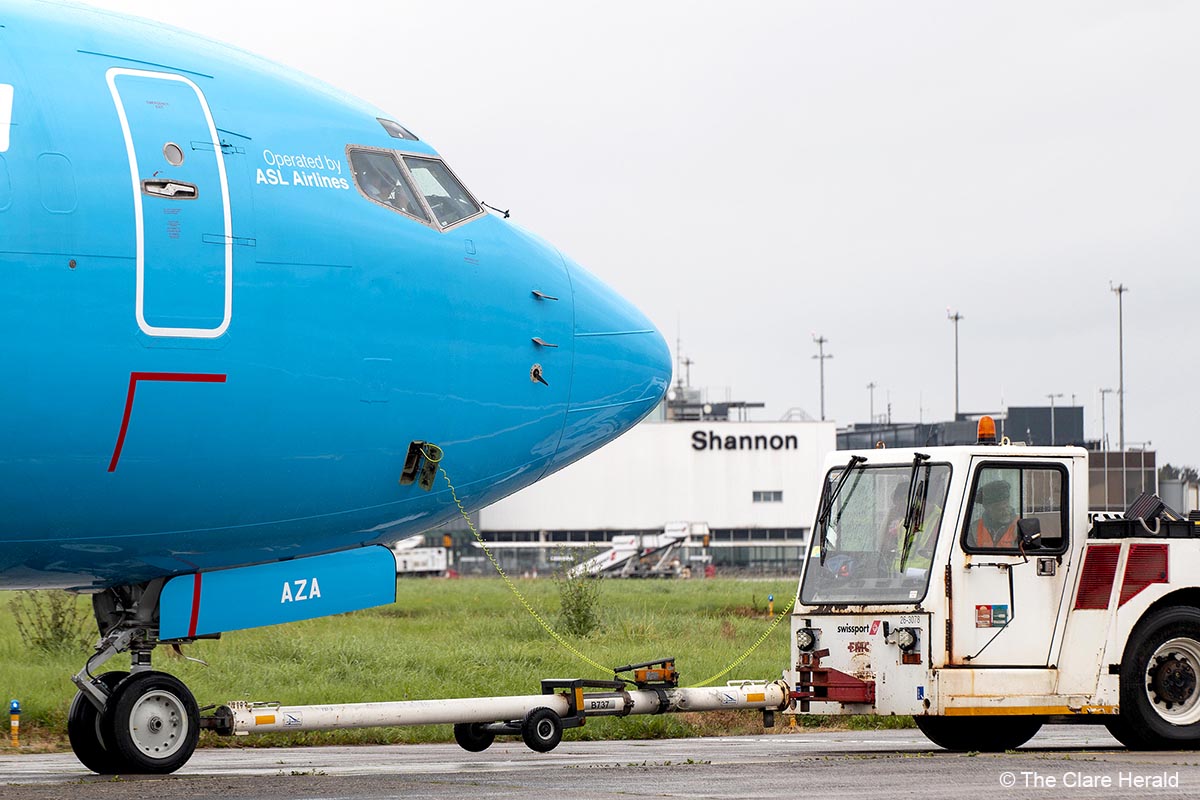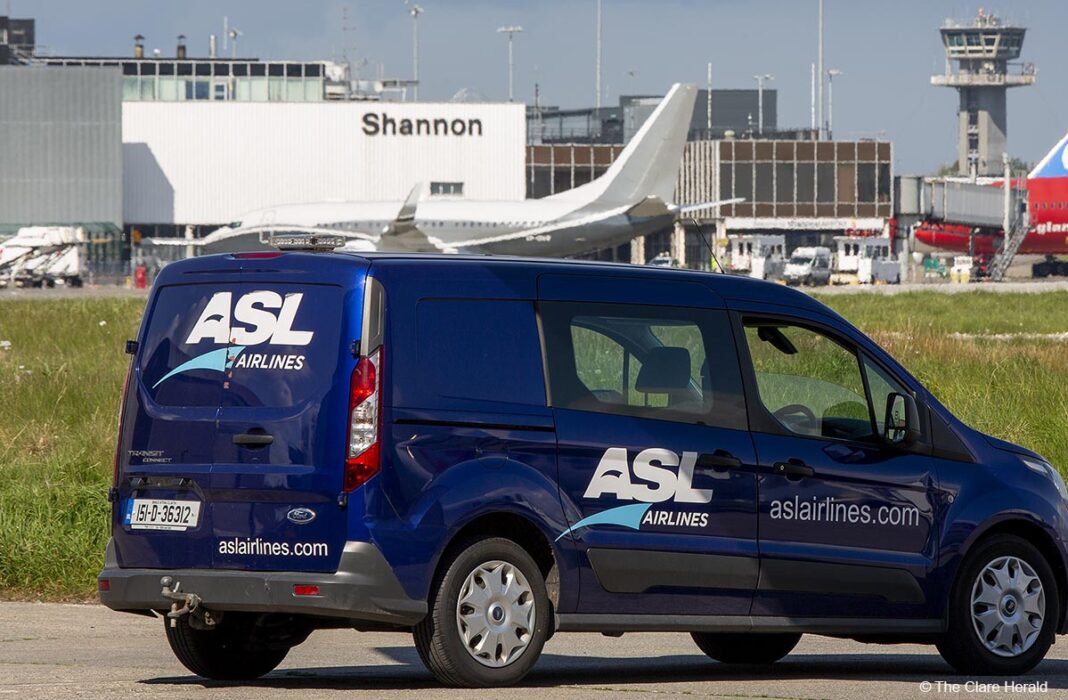ASL Aviation Holdings has confirmed that it has acquired Australian airline, Pionair, Australia’s leading independent provider of charter and ACMI services.
The Sydney based airline will continue to operate as a proudly Australian airline.
Over time Pionair will reinforce its Australian identity and will be re-branded as ASL Airlines Australia in common with ASL Group’s European airlines ASL Airlines Ireland, ASL Airlines Belgium, ASL Airlines France and ASL Airlines United Kingdom.
ASL’s investment in Pionair will be of significant benefit to the economy across the airline’s main bases in Sydney, Melbourne, Adelaide, Brisbane and Cairns. Pionair is set to become a stronger and larger service provider in the Australian aviation market, particularly in the important express parcel and e-retail sectors.
There will be no job losses due to this acquisition with staff numbers set to increase in line with ASL’s growth and fleet plans. Pionair owner and CEO Steve Ferris will support ASL Airlines Australia with a continued leadership role in the airline.
Dublin, Ireland based ASL Aviation Holdings is a global leader in aviation services provision, specialising in the express parcel and e-commerce markets. In addition to its four European airlines ASL has cargo airlines in Thailand and India and its South African low-cost passenger airline, FlySafair, is the market leader in its area of operations.
The Pionair fleet of 12 aircraft, including Embraer E190-E2’s and Bae 146/Avro regional jets will join the ASL Group’s current fleet of 140 aircraft. ASL’s aircraft range from the Boeing 747 to the turbo prop ATR72-600 freighter and includes the largest Boeing 737 freighter fleet in Europe.
“Expansion into the Australian and Oceania markets was a logical step for ASL as we develop our services globally to meet the needs of our customers,” said ASL Aviation Holdings Chief Executive, Dave Andrew. “Pionair was a natural fit for us, with the same field of operations and a foundation of safety, reliability and quality that matches our fundamental customer service values aimed at providing a service that is better than our customers could have expected.”
ASL Aviation Holdings is halfway through a five-year fleet renewal programme that includes an agreement with Boeing for 40 B737-800BCF (Boeing Converted Freighters) conversion slots. Converted aircraft are allocated to ASL airlines in Europe, Thailand and India and ASL expects to allocate a first B737-800BCF to ASL Airlines Australia as part of this programme.
The 737-800BCF meets ASL customer requirements for a next generation freighter that offers higher reliability and lower fuel consumption and operating costs per flight. The aircraft can carry up to 23.9 tonnes (52,800 pounds) of freight with a range of up to 3,750 kilometres (2,025 nautical miles). ASL is the world’s largest operator of the B737-800BCF which supports ASL’s commitment to sustainability and net-zero emissions by 2050. The B737NG emits 15% fewer carbon emissions than earlier versions of the B737.

Steve Ferris welcomed ASL Airlines Australia as “the ideal evolution of Pionair.” He said “We fit perfectly into the ASL philosophy, We are in the same business segments; we operate for some of the same customers, and we strive to offer the best possible service. Now, as ASL Airlines Australia we will have the ability to grow and to develop our fleet and services. It is the perfect marriage for both our staff and customers.”
ASL Aviation Holdings acquisition of Pionair has received all required regulatory approvals and is effective immediately. The financial details of this release are confidential and are not being disclosed.
About ASL Aviation Holdings
ASL Aviation Holdings, a global aviation services company with seven airlines based in Europe, South Africa and Asia, is a world leader in ACMI airline operations and both scheduled and charter cargo and passenger services.
Headquartered in Dublin, Ireland, ASL’s airlines include ASL Airlines Ireland, ASL Airlines Belgium, ASL Airlines France and ASL Airlines United Kingdom in Europe. ASL also has an associate airline FlySafair in South Africa and joint venture airlines K-Mile Asia in Thailand and Quikjet Airlines in India. The group also includes several leasing entities.
ASL Aviation Holdings airlines operate cargo services for the world’s leading express parcel integrators and online retailers. Group airlines also operate scheduled and charter cargo services under its own airline brands on domestic, international, and intercontinental routes in Europe, Asia, the Middle East, North America and Africa.
ASL has a global team of 2,500 people of 51 nationalities. The Group has a fleet of 140 aircraft that includes 7 aircraft types ranging from the turbo prop ATR 72 to the Boeing 747. ASL’s agreement with Boeing for Boeing 737-800BCF ‘Boeing Converted Freighters’, will see the entry into service of the 20th ASL aircraft in Q2 2023.
About Pionair Australia
Established in 2000, Pionair is an accredited 121 airline offering passenger and cargo charter and ACMI services across Australia, New Zealand and the Pacific Islands.
With its headquarters and main operational hub based at Bankstown Airport, Sydney, Pionair has four other operating hubs across Australia in Adelaide, Brisbane, Cairns and Melbourne.
Since 2016 Pionair has been operating Cargo aircraft for TNT/FedEx first through Virgin Australia and currently through Qantas. It has a diverse customer base and is currently the only operator in the region of the Embraer E190-E2 aircraft, which with its GTF engines has an extraordinary range and low fuel burn.
In addition to the modern E190-E2’s, Pionair owns and operates the largest fleet of commercially operated Bae146 / RJ type aircraft in the world, with the majority being freighters.
Pionair offers a business to business ACMI and Charter model, and supports many sectors such as Tourism, Air Cargo, Dangerous goods transport, FIFO ( Fly in fly out) and additional capacity for regional carriers.
